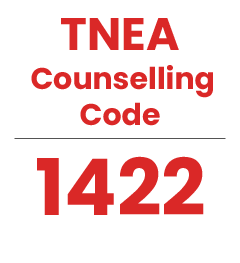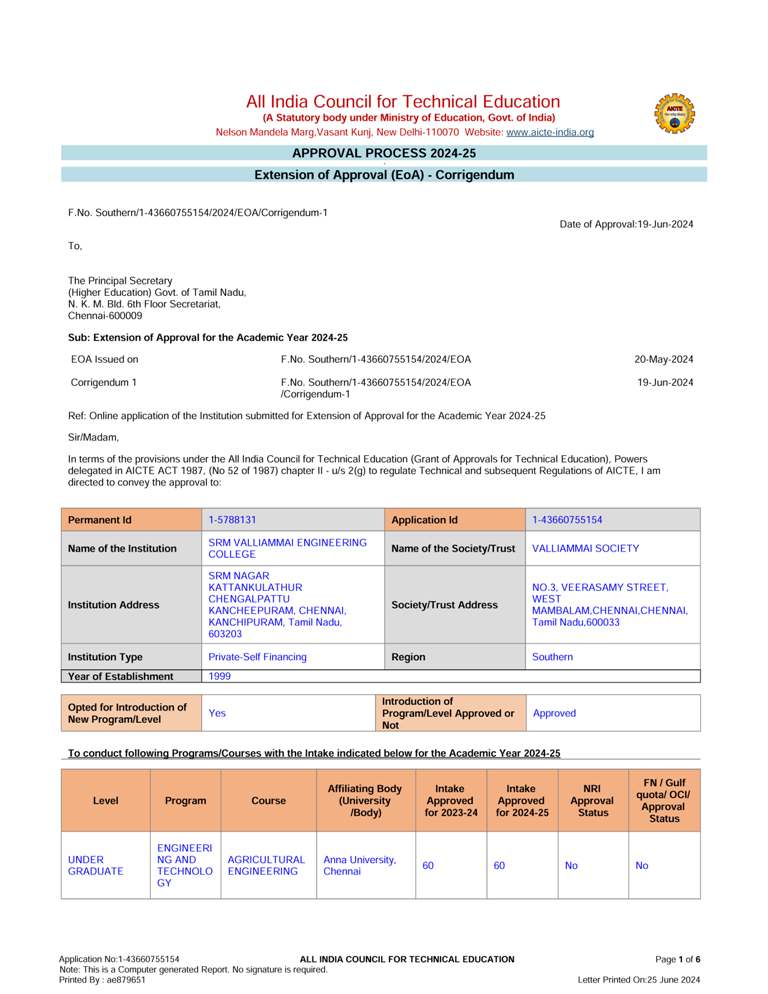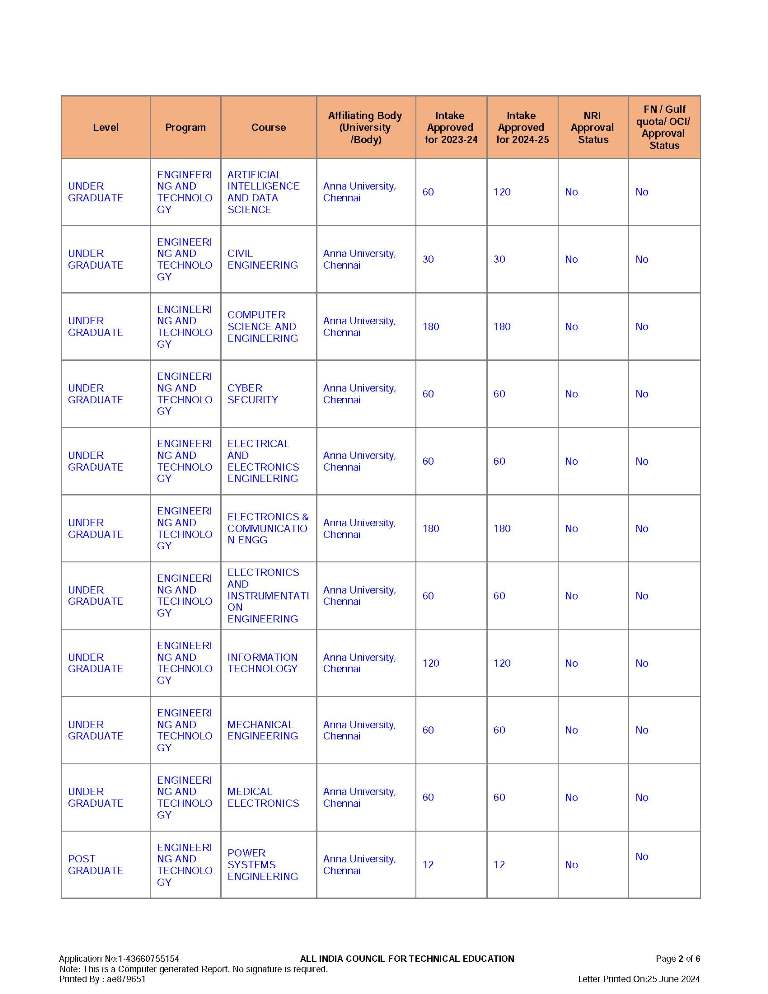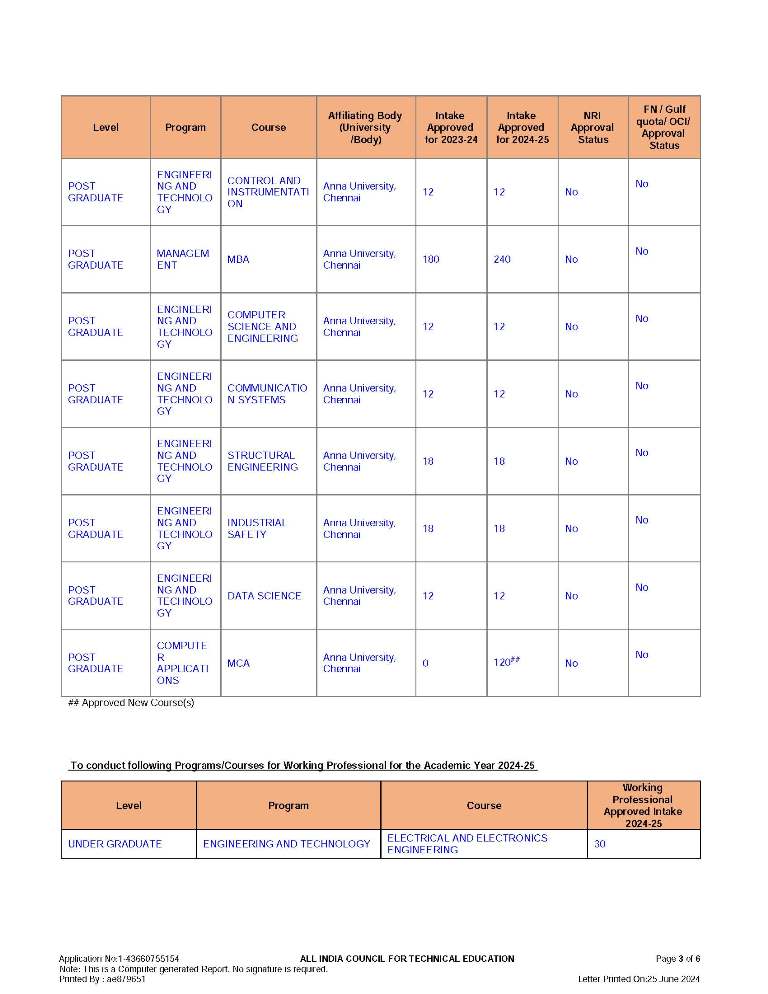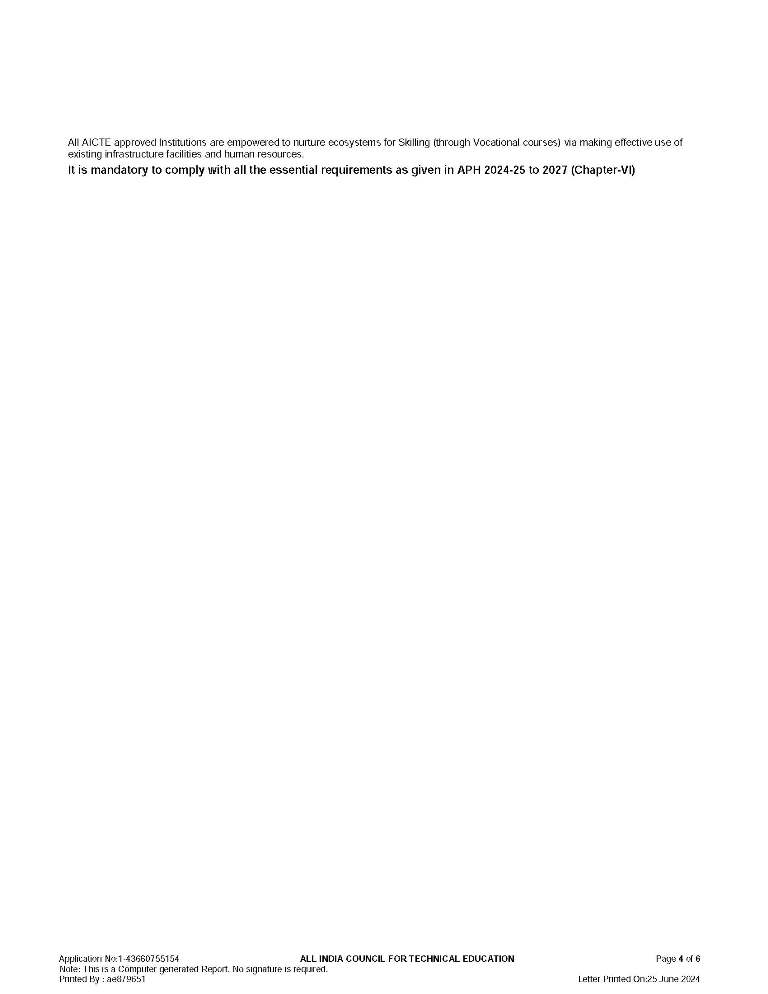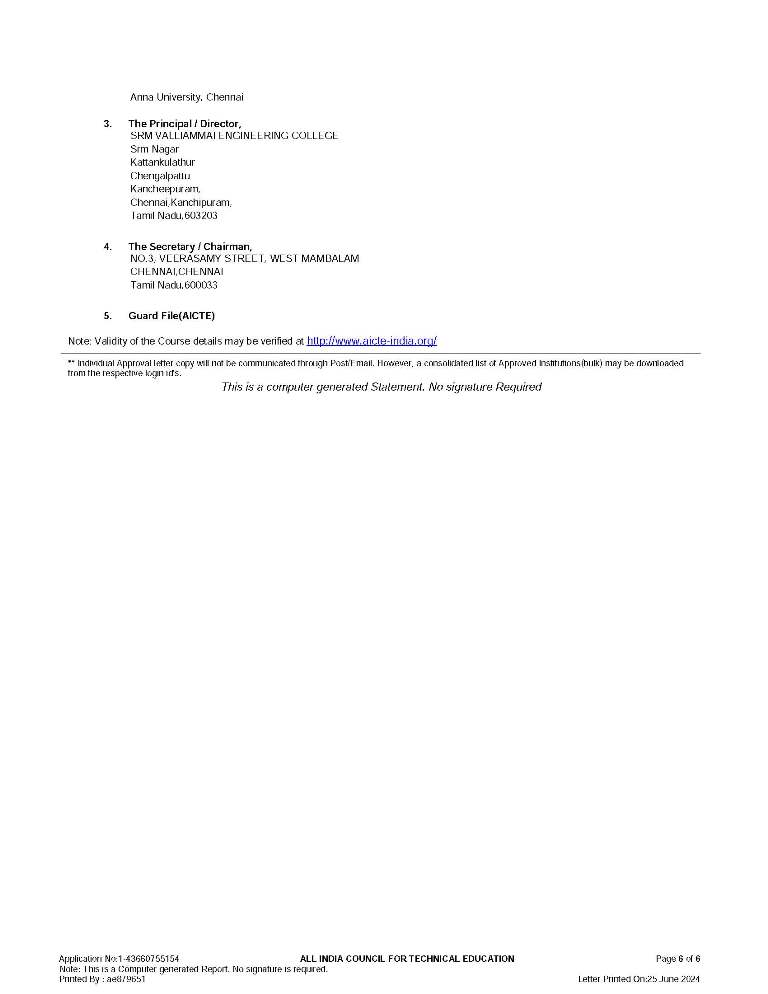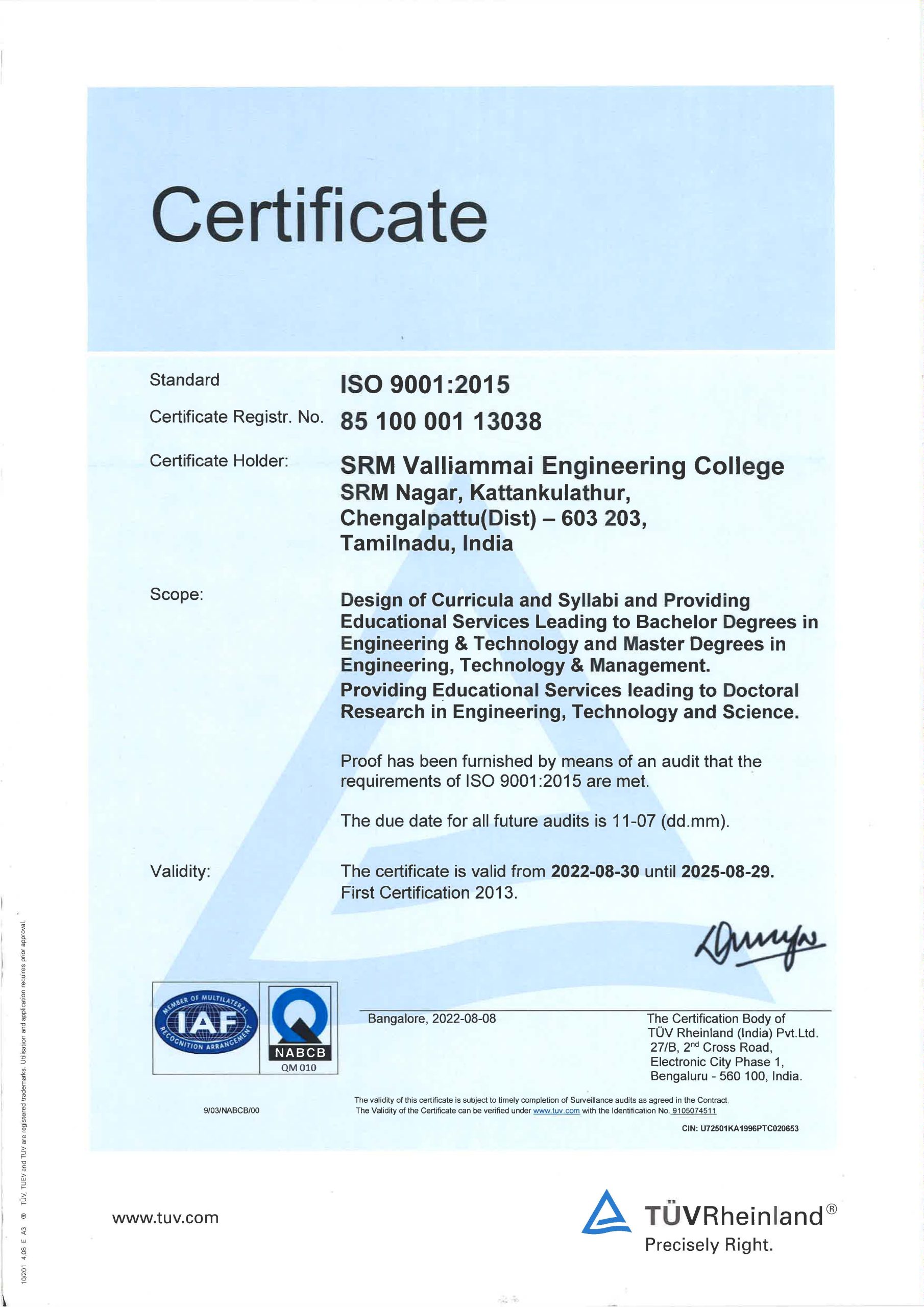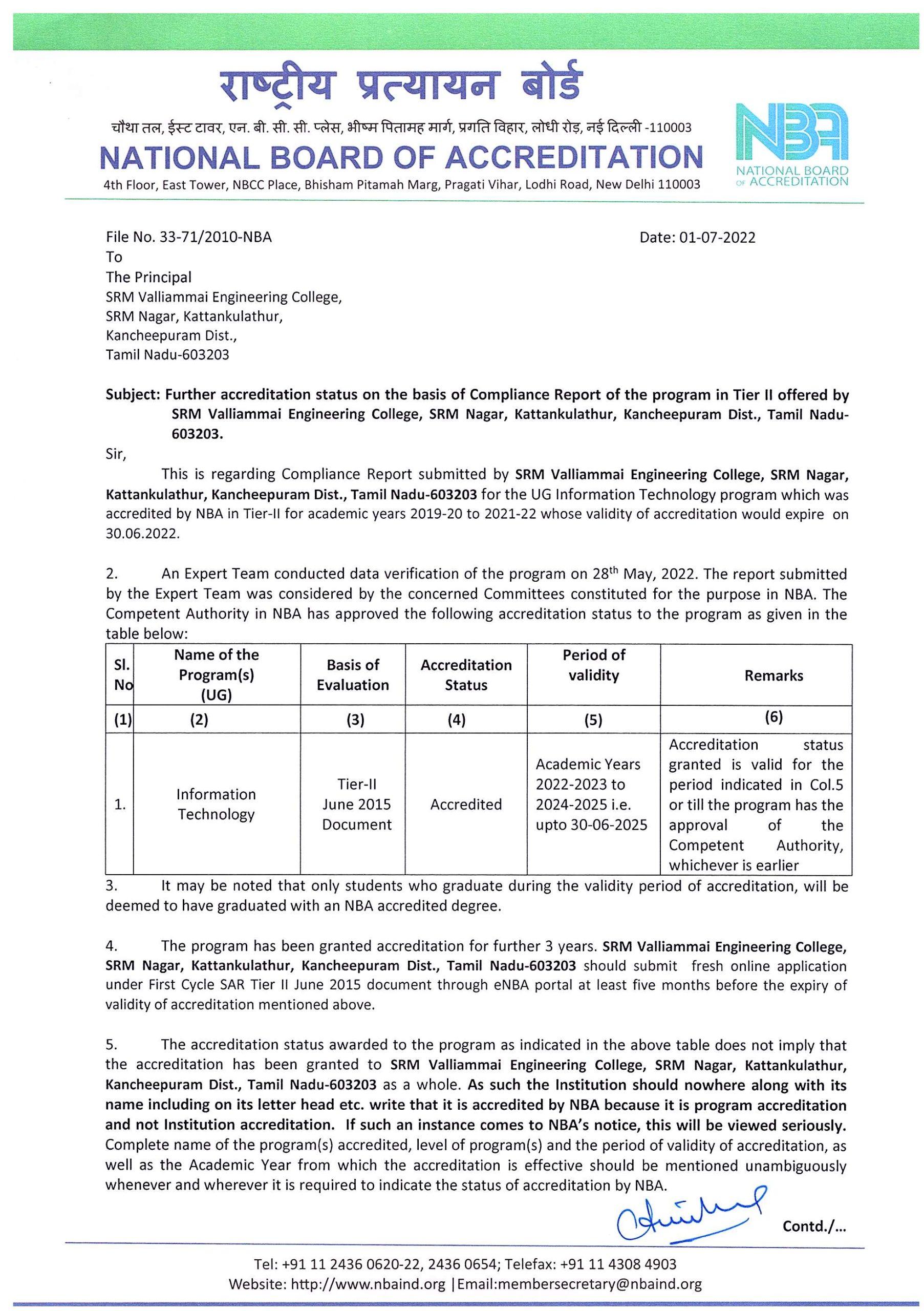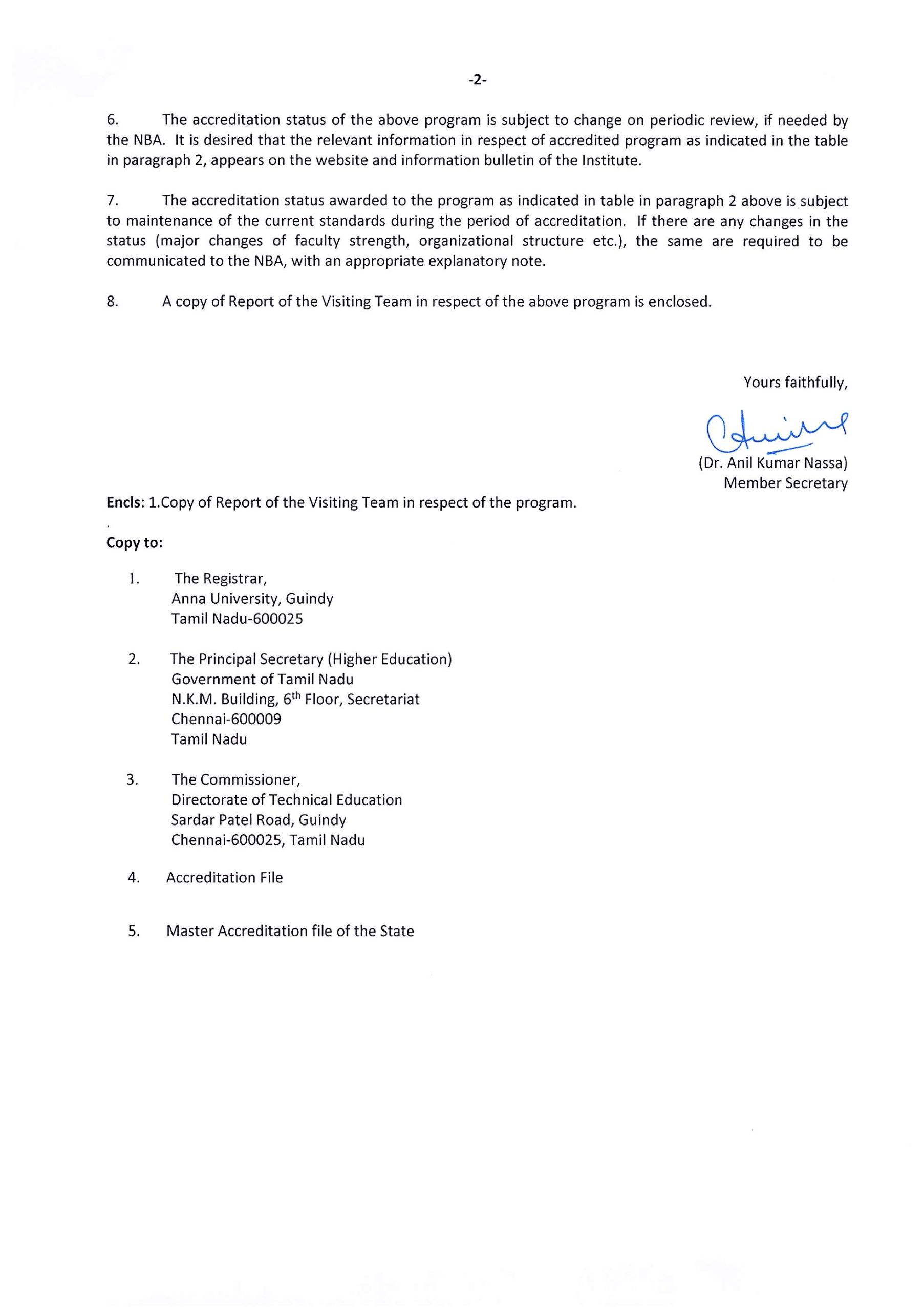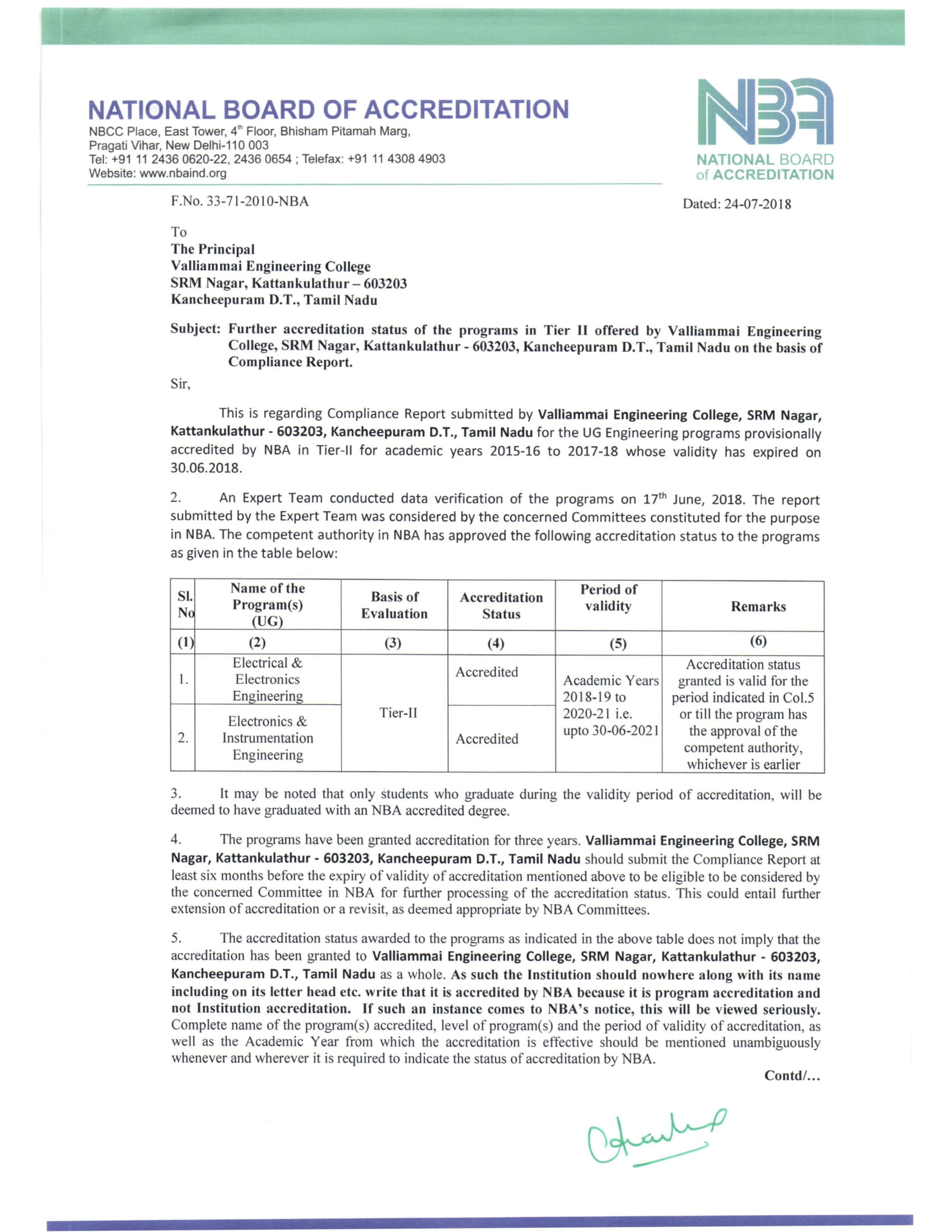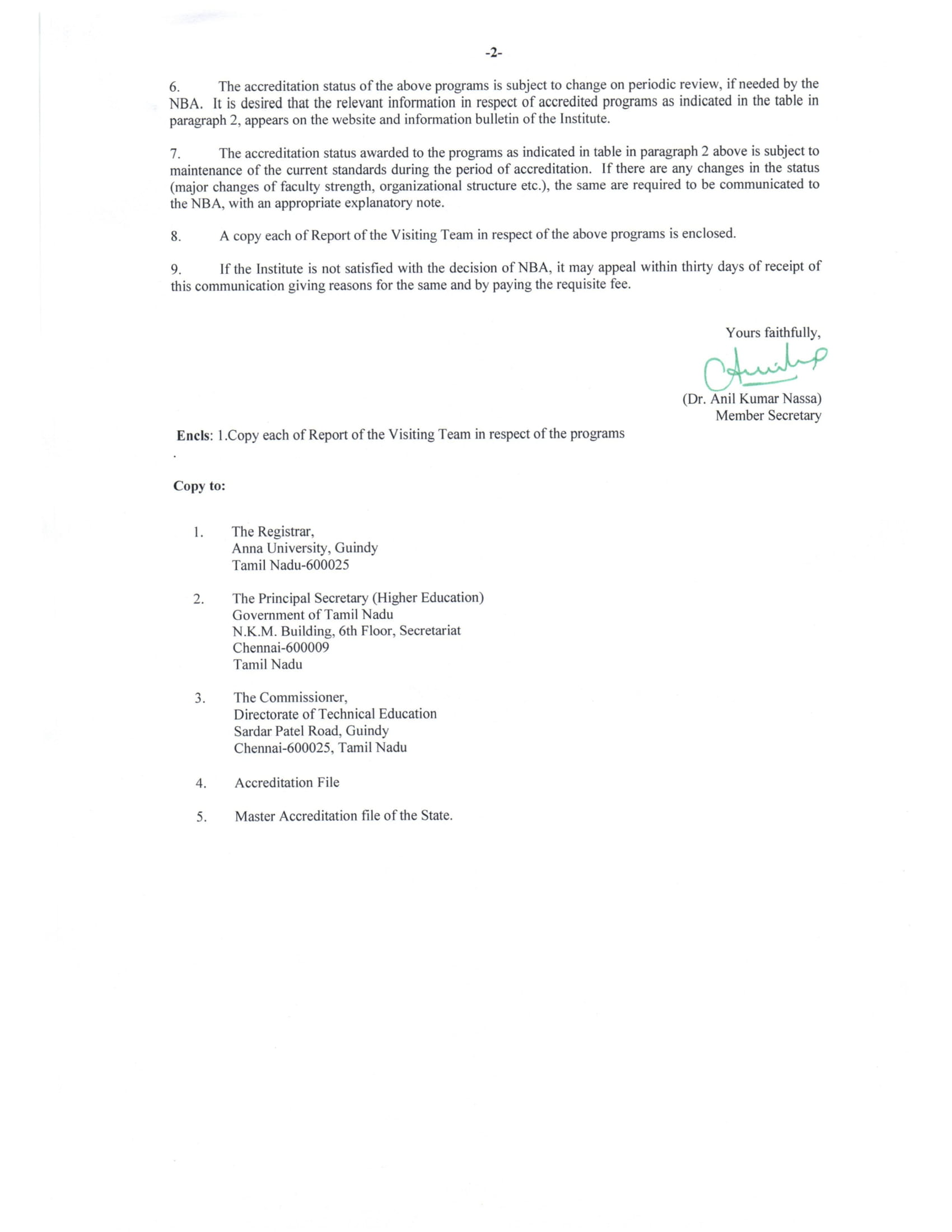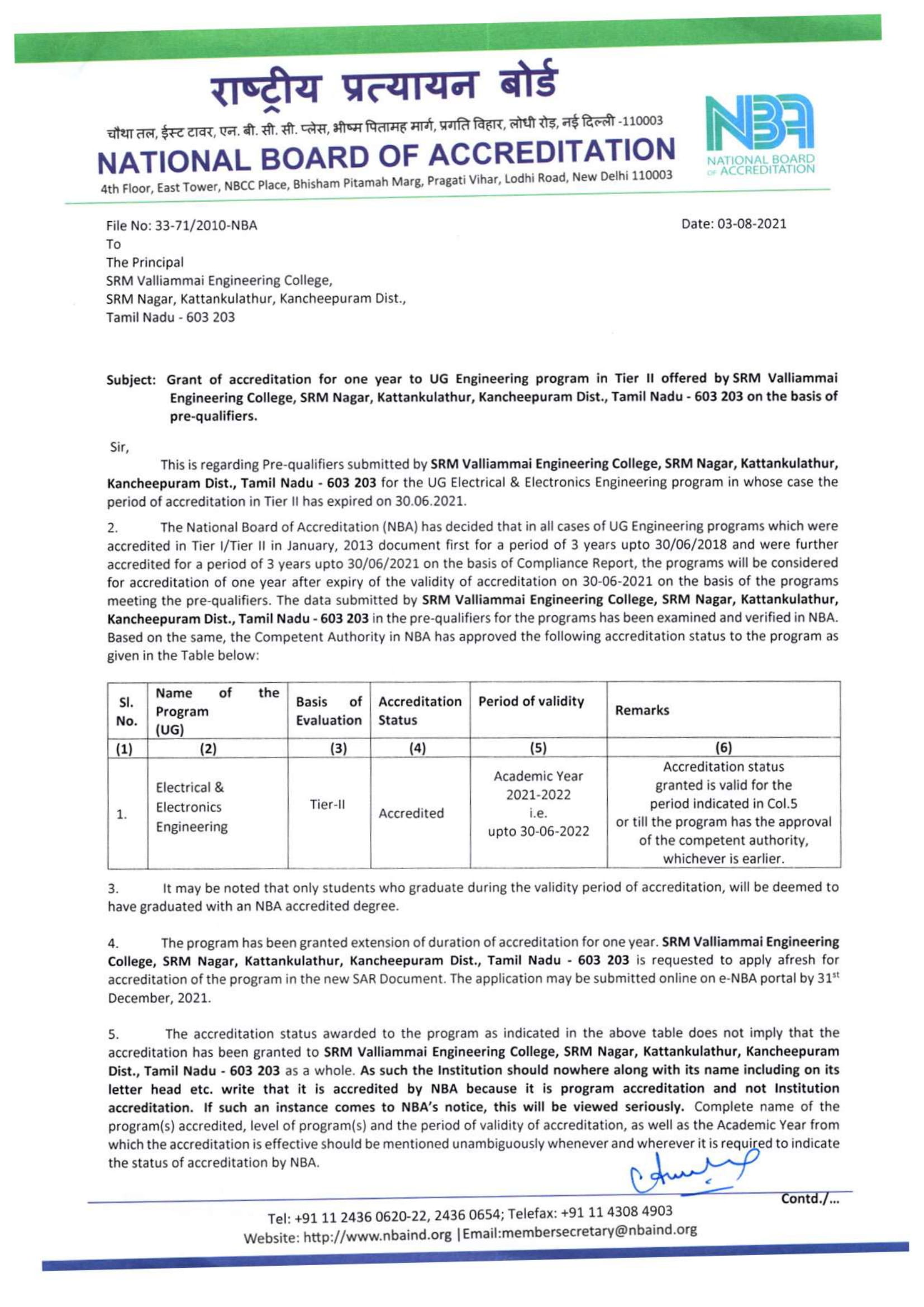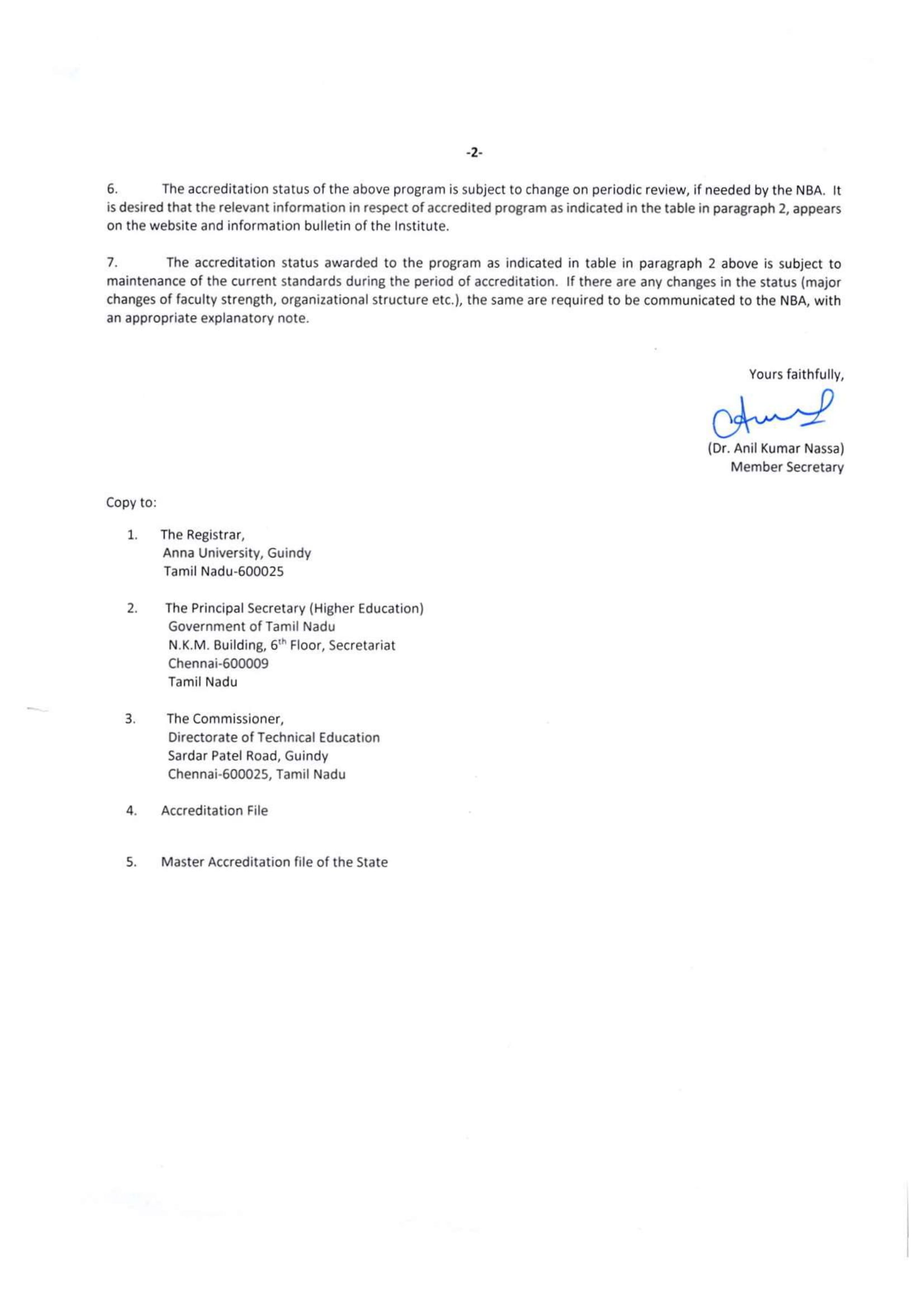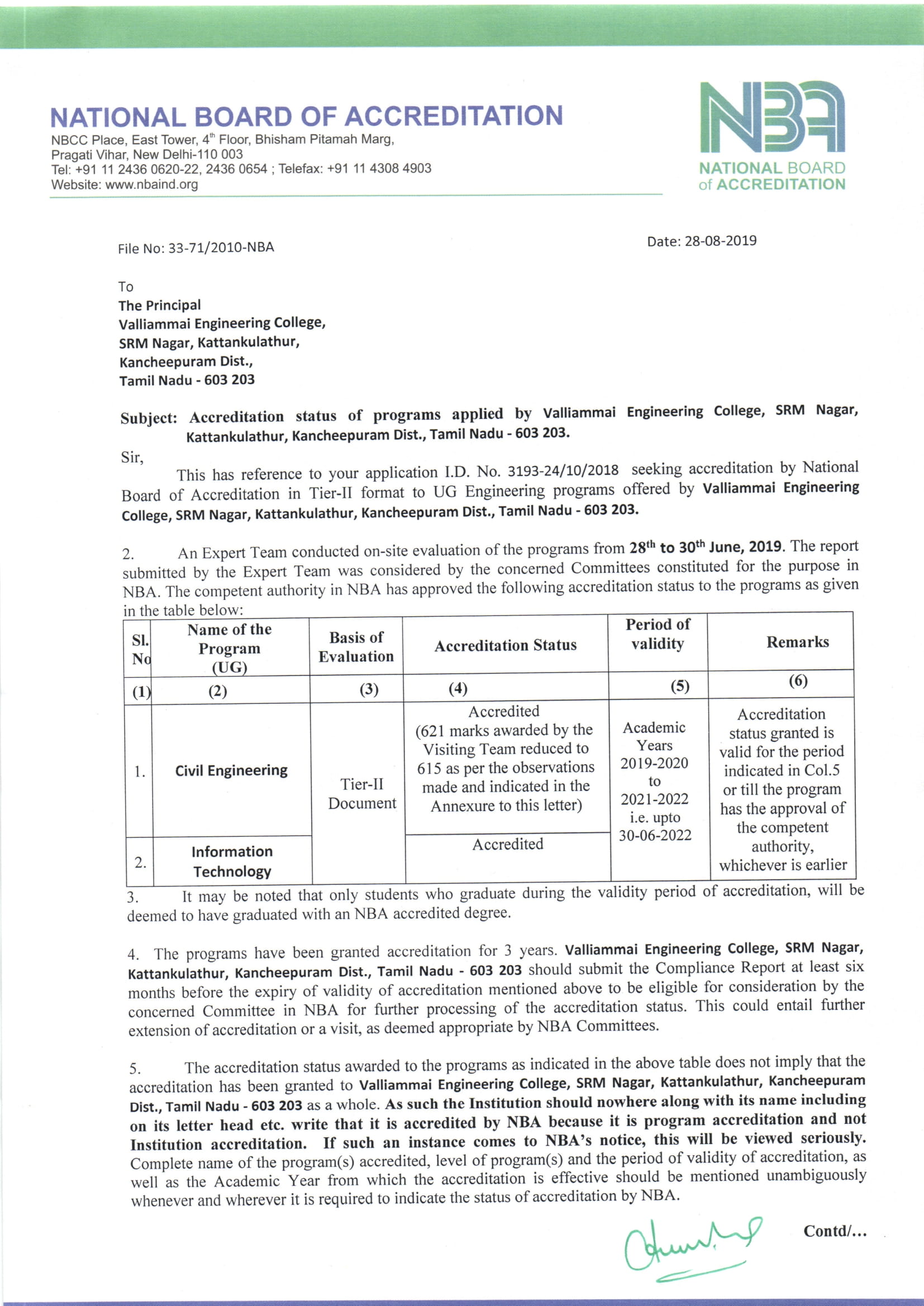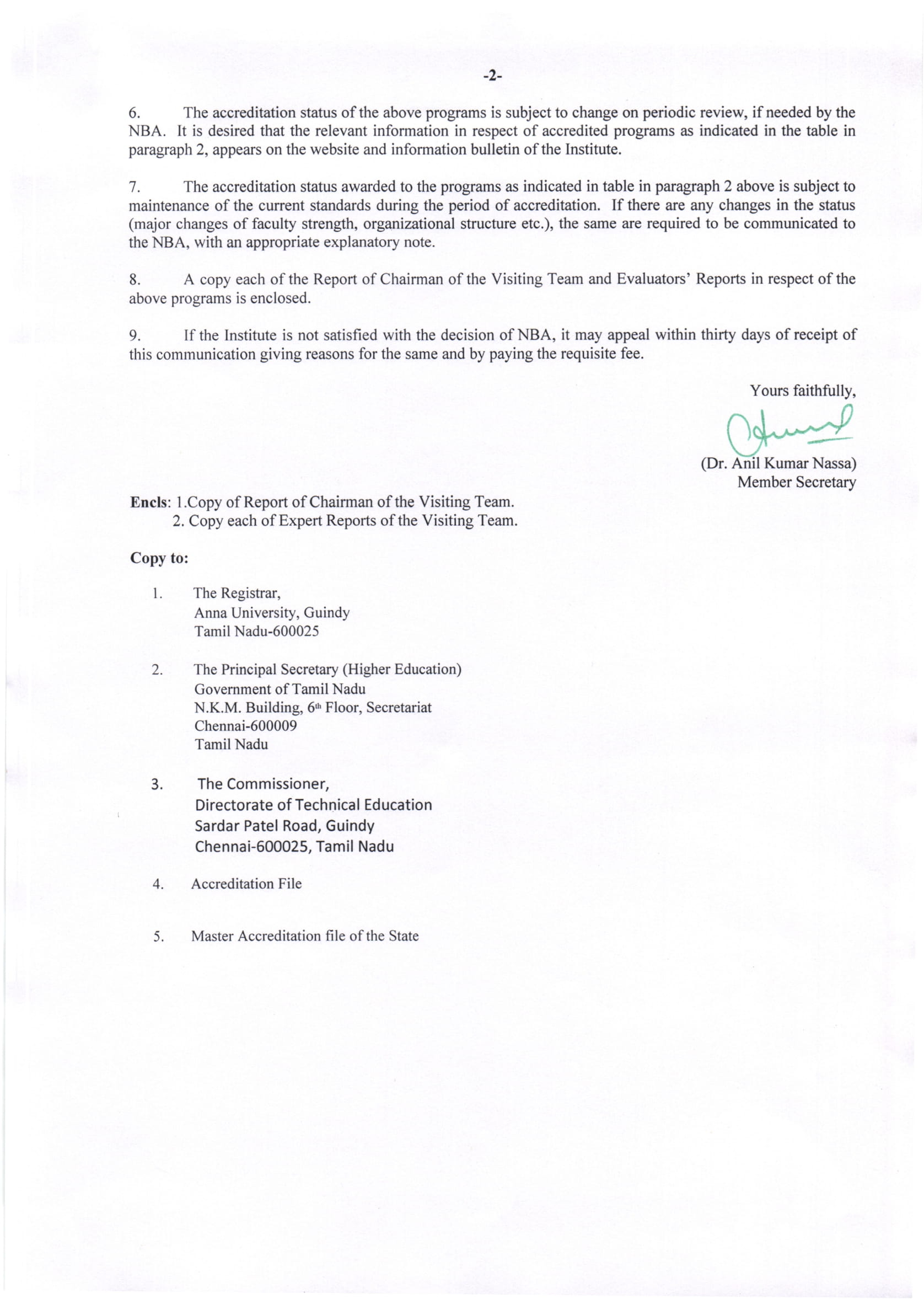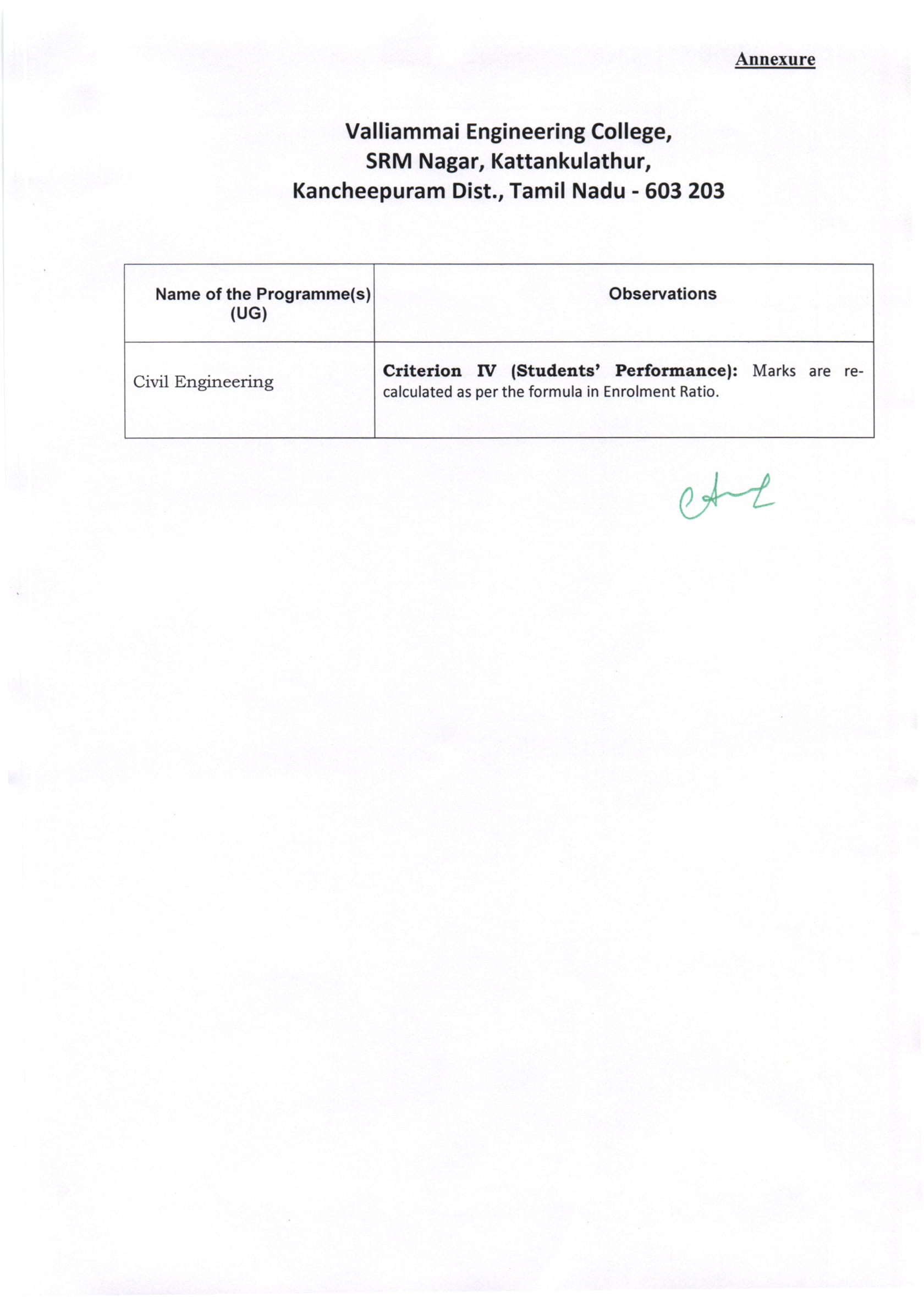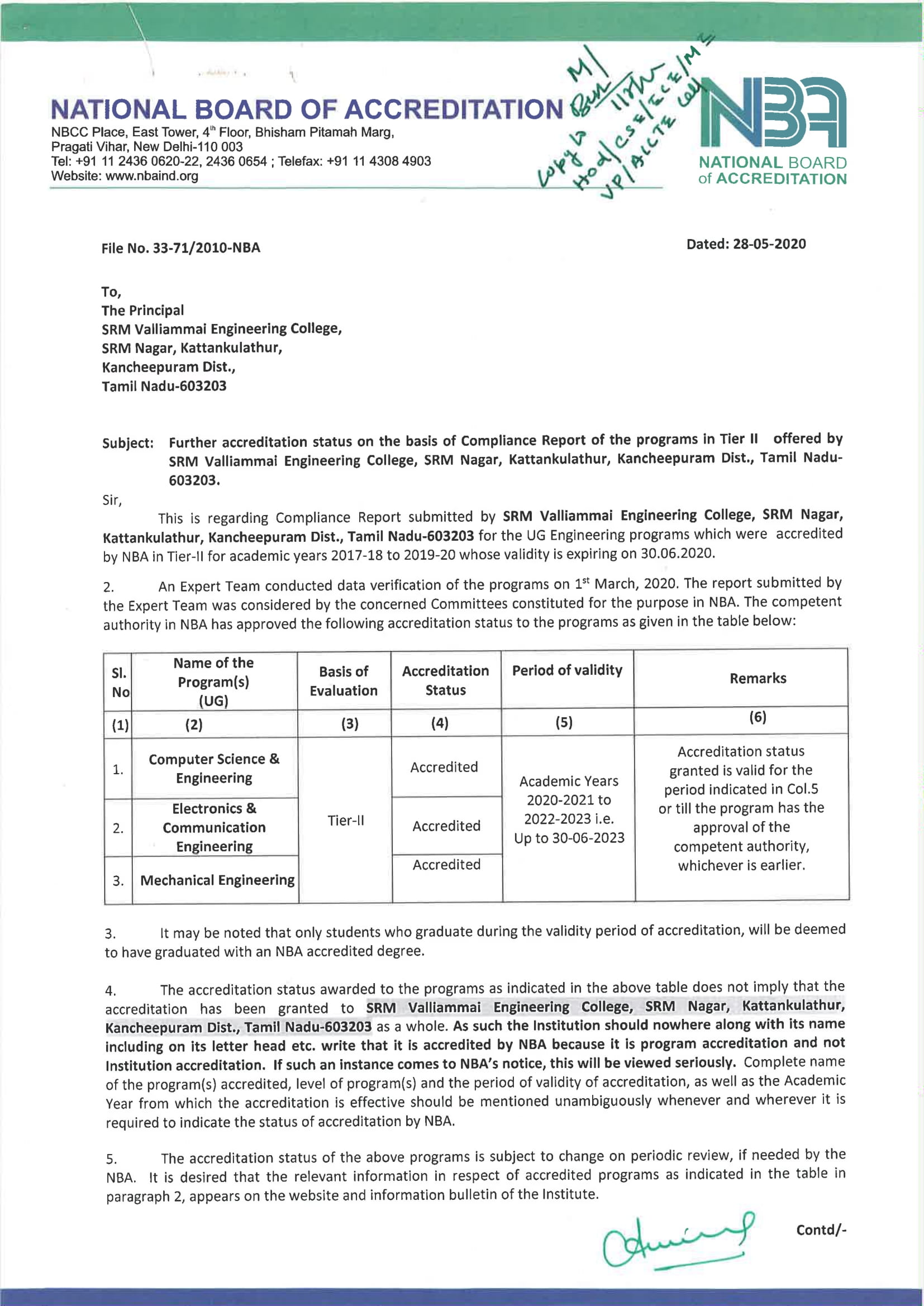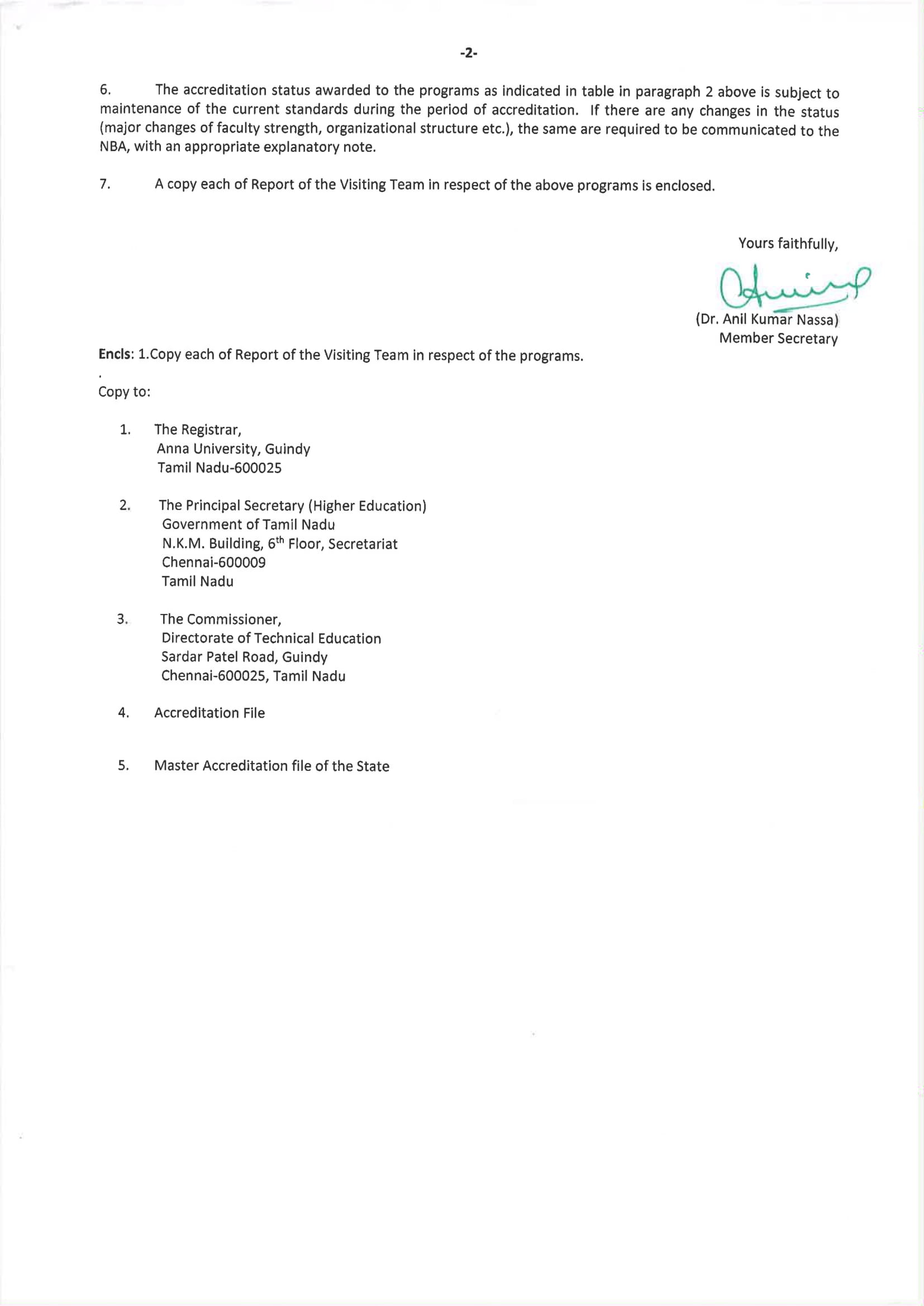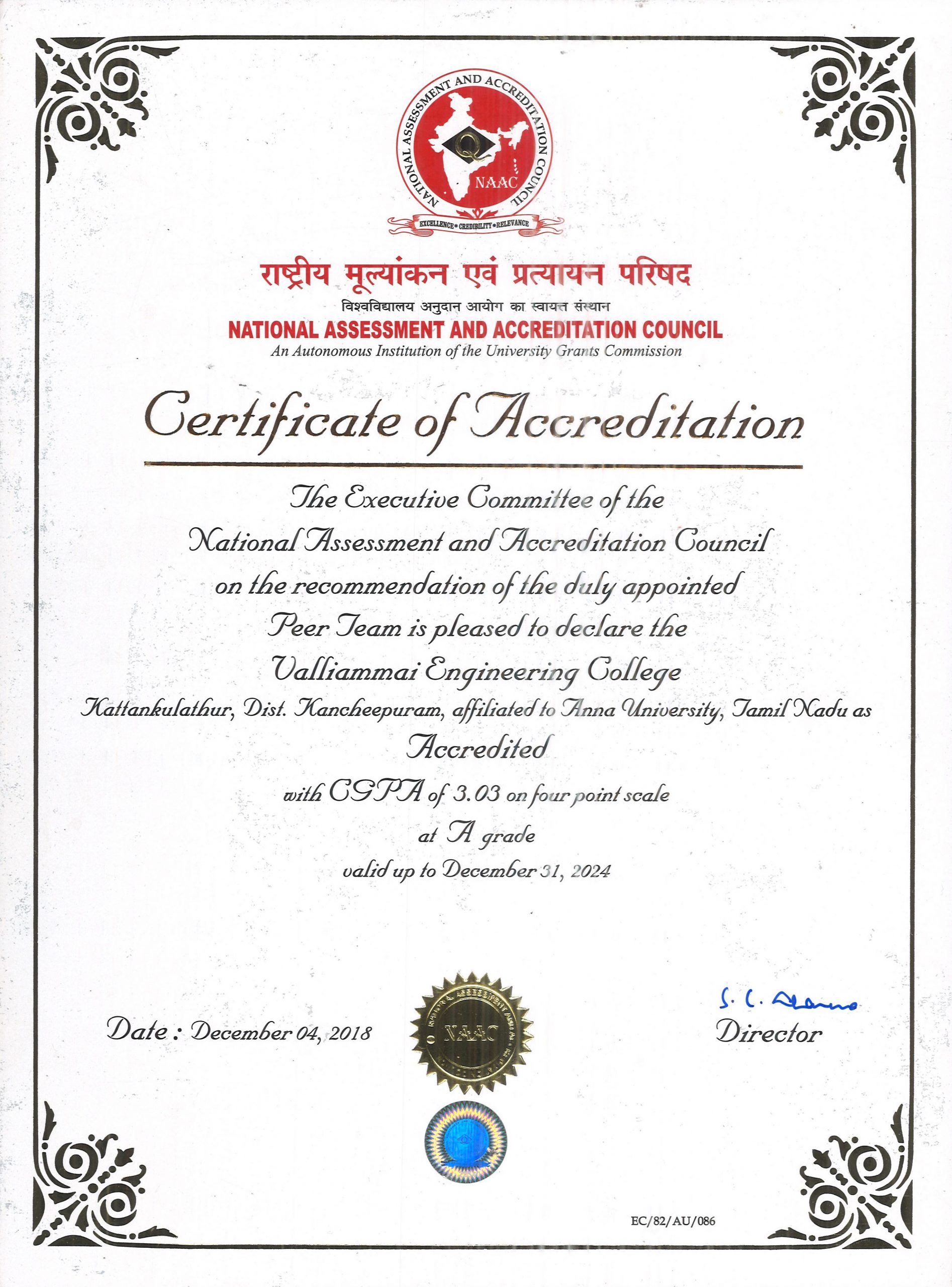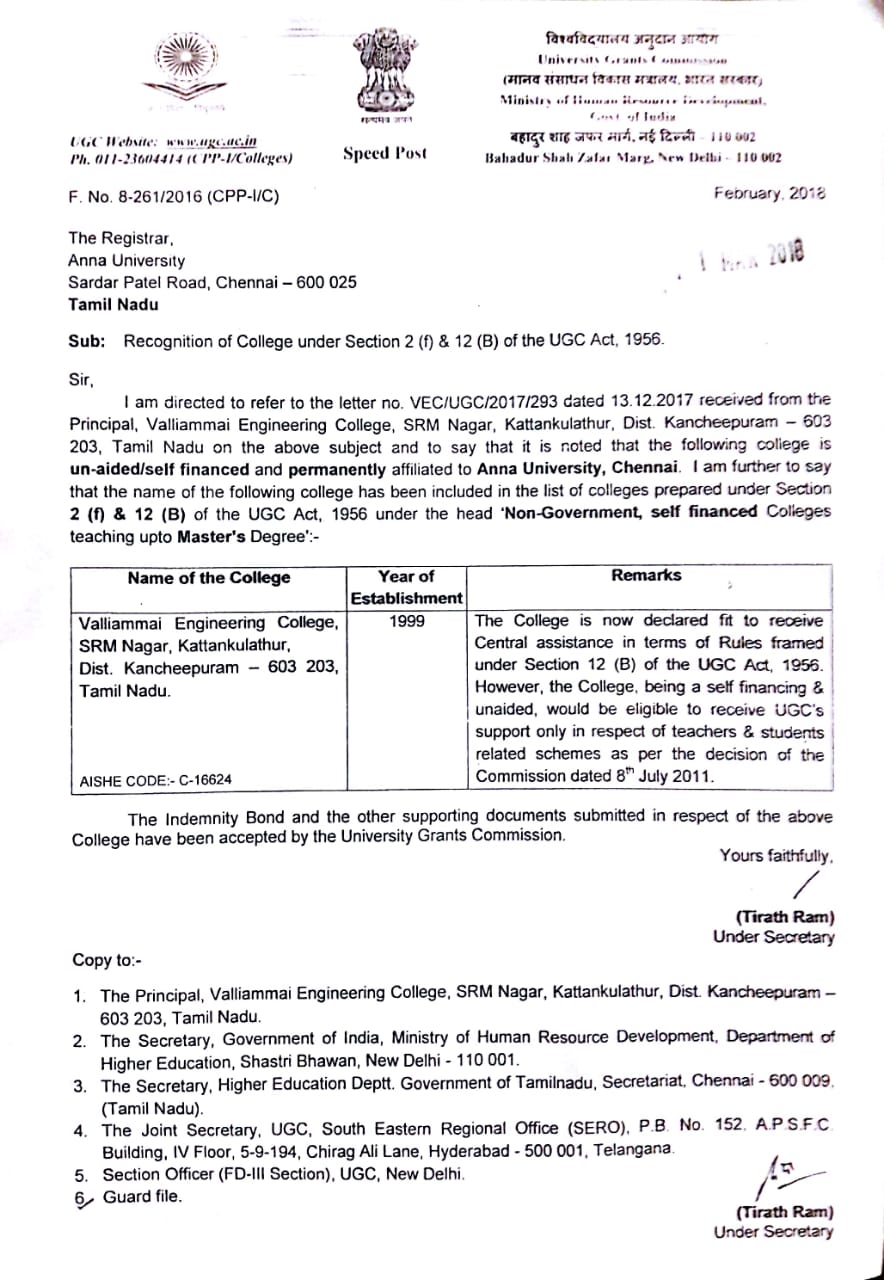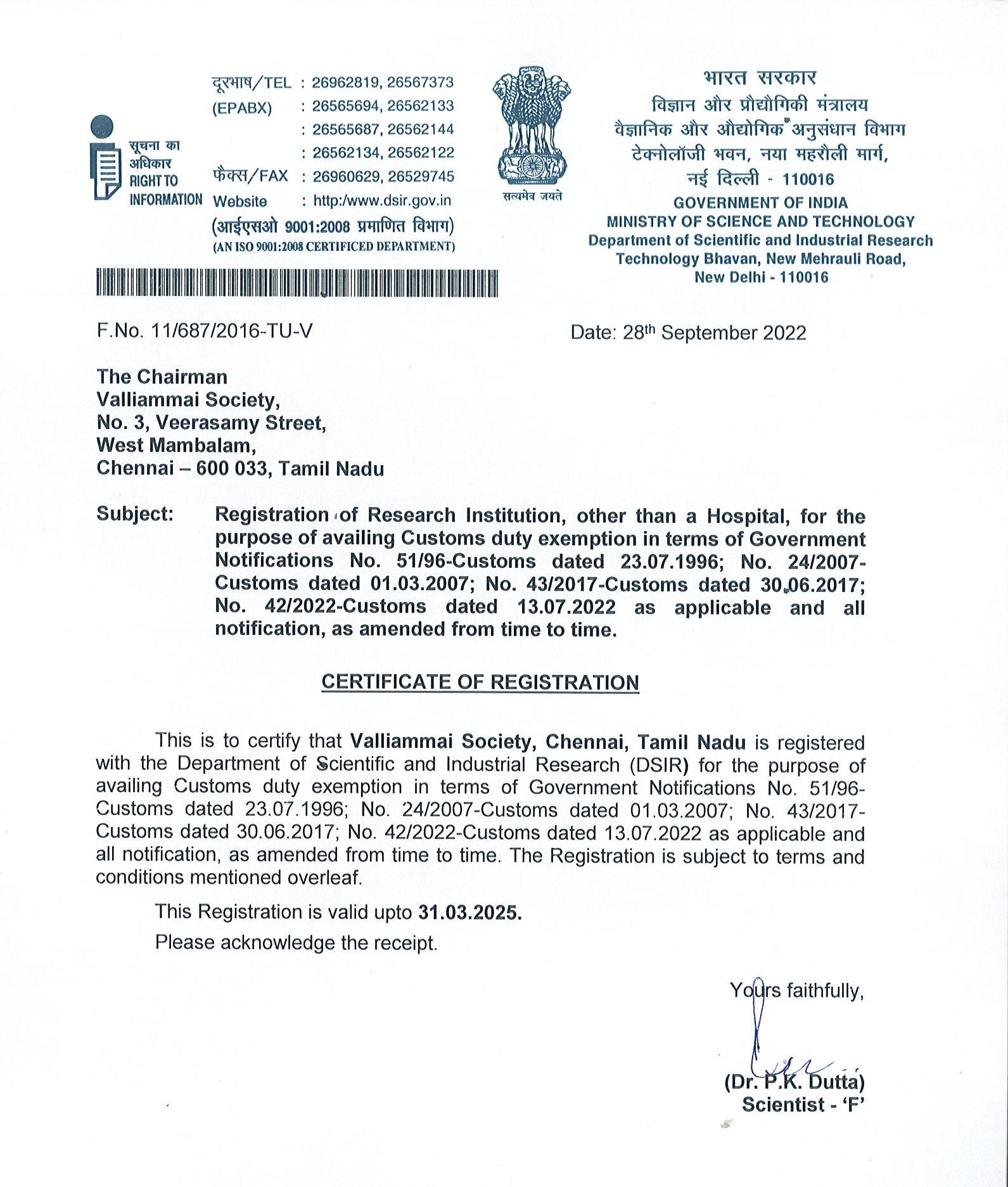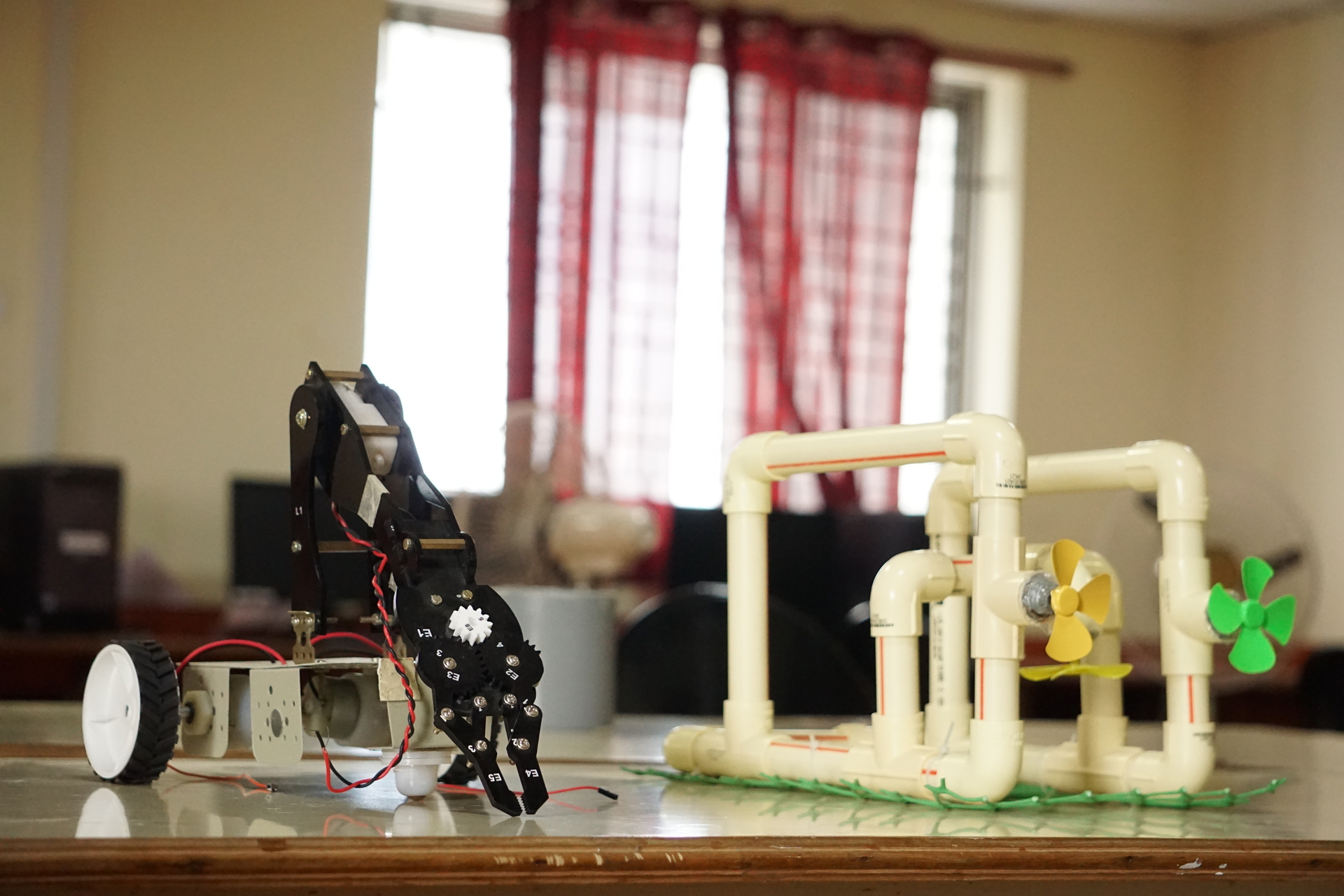
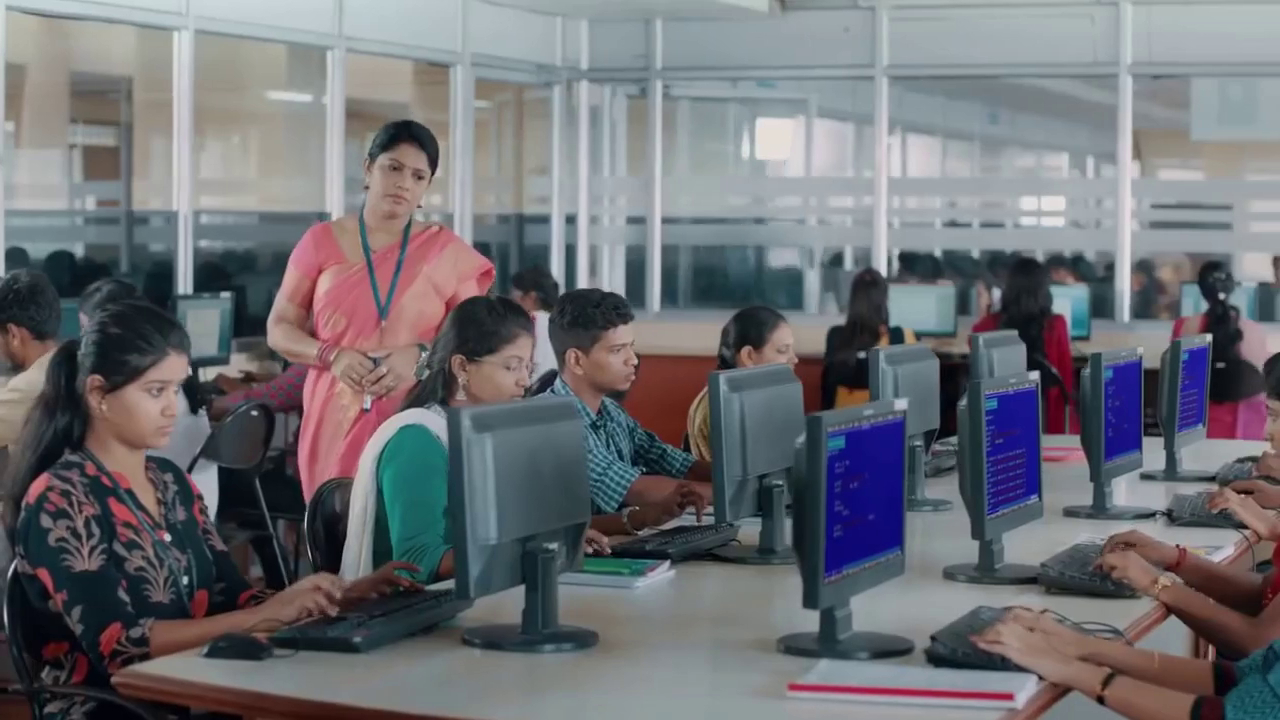
About the Department
Department of Computer Applications
The Master of Computer Applications (MCA) was established in the year 2024 in the College, as an exclusive Department is designed to equip students with the latest technological skills and knowledge required to excel in the ever-evolving field of computer science and applications. Our comprehensive curriculum integrates theoretical foundations with practical applications, preparing graduates for rewarding careers in the tech industry.
The Department strives to develop long Term relationships with Industries and market the Student’s Talents effectively. The Students are thus provided high level ‘Leads and Pathways’ that enable them to gain access to a broad range of ‘high potential’ and ‘hi-tech’ Career Opportunities.
Vision, Mission, PEO, PO, PSO
Vision
To create and apply knowledge by thinking and doing, preparing for tomorrow’s innovators and conduct cutting-edge research to bring the transformative power of computing to society in a rapidly changing world.
Mission
To bring the most brilliant students and faculty together to understand the strengths and limits of computation, invent next-generation computing systems, and create innovative solutions to real-world problems.
To provide conducive environment so as to achieve excellence in teaching-learning, and research and development activities.
Deliver knowledge among students through novel pedagogical methods in the varied areas of computer sciences with thrust on applications so as to enable students to undertake research.
To facilitate students to nurture skills to practice their professions competently to meet the ever-changing needs of society.
Graduates of the MCA program can explore a wide range of career opportunities.
- Software Developer/Engineer Design, develop, and maintain software applications for various platforms.
- System Analyst Analyze and design technology solutions to meet the needs of businesses and organizations.
- Database Administrator Manage and maintain databases to ensure data integrity, security, and availability.
- Network Administrator Oversee and manage an organization’s network infrastructure to ensure smooth and secure operations.
- Data Scientist/Analyst Analyze large sets of data to derive meaningful insights and support decision-making processes.
- Cybersecurity Analyst Protect an organization’s computer systems and networks from security breaches and cyber-attacks.
- Web Developer Create and maintain websites and web applications, ensuring functionality and user experience.
- Mobile App Developer Develop and maintain mobile applications for smartphones and tablets.
- IT Consultant Provide expert advice and solutions to organizations on how to optimize their technology use.
- Project Manager Plan, execute, and oversee technology projects, ensuring they are completed on time and within budget.
- Entrepreneur Start and run your own tech-based business, leveraging your skills and knowledge to innovate and solve real-world problems.
Programme Educational Objectives (PEO’s) :
PEO1: To prepare students with a breadth of knowledge to comprehend, analyze, design, and create computing solutions to real-life problems and to excel in industry / technical profession..
PEO2: To provide students with a solid foundation in mathematical and computing fundamentals and techniques required to solve technology-related problems and to pursue higher studies and research.
PEO3: To inculcate a professional and ethical attitude in students, to enable them to work towards a broad social context.
PEO4: To empower students with skills required to work as members and leaders in multidisciplinary teams and with continuous learning ability on technology and trends needed for a successful career.
Programme Outcomes (PO’s) :
MCA Graduates will be able to
- 1. Engineering knowledge: Apply the knowledge of mathematics, science, engineering fundamentals, and an engineering specialization to the solution of complex engineering problems.
- 2. Problem analysis: Identify, formulate, review research literature, and analyze complex engineering problems reaching substantiated conclusions using the first principles of mathematics, natural sciences, and engineering sciences.
- 3. Design/development of solutions: Design solutions for the complex engineering problems and design system components or processes that meet the specified needs with appropriate consideration for the public health and safety, and the cultural, societal, and environmental considerations.
- 4. Conduct investigations of complex problems: Use research-based knowledge and research methods including the design of experiments, analysis and interpretation of data, and the synthesis of the information to provide valid conclusions.
- 5. Modern tool usage: Create, select, and apply appropriate techniques, resources, and modern engineering and IT tools including prediction and modeling to complex engineering activities with an understanding of the limitations.
- 6. The engineer and society: Apply reasoning informed by the contextual knowledge to assess societal, health, safety, legal and cultural issues and the consequent responsibilities relevant to the professional engineering practice.
- 7. Environment and sustainability: Understand the impact of the professional engineering solutions in societal and environmental contexts, and demonstrate the knowledge of, and need for sustainable development.
- 8. Ethics: Apply ethical principles and commit to professional ethics and responsibilities and norms of the engineering practice.
- 9. Individual and team work: Function effectively as an individual, and as a member or leader in diverse teams, and in multidisciplinary settings.
- 10. Communication: Communicate effectively on complex engineering activities with the engineering community and with society at large, such as, being able to comprehend and write effective reports and design documentation, make effective presentations, and give and receive clear instructions.
- 11. Project management and finance: Demonstrate knowledge and understanding of the engineering and management principles and apply these to one’s own work, as a member and leader in a team, to manage projects and in multidisciplinary environments.
- 12. Life-long learning: Recognize the need for, and have the preparation and ability to engage in independent and life-long learning in the broadest context of technological change.
Program Specific Outcomes (PSO’s) :
PSO1: Exhibit proficiency in planning, implementing and evaluating team oriented-software Programming solutions to specific business problems and society needs.
PSO2: Demonstrate professional skills in applying programming skills, competency and decision making capability through hands-on experiences.
PSO3: Apply logical thinking in analyzing complex real world problems, and use professional and ethical behaviors to provide proper solutions to those problems.
PSO4: Demonstrate the ability to work effectively as part of a team in applying technology to business and personal situations.
Faculty
The faculty members are highly qualified and well experienced. There are 8 faculty members who are working full – time and on regular basis and 1 non–teaching staff who provide support for the smooth running of the department. The faculty members impart their knowledge and skills to the students to achieve the goals of the department. The management provides constant support for the faculty members to upgrade their knowledge by sponsoring them to attend seminars, conferences, faculty development programmes (FDP) and quality improvement programmes (QIP). The faculty members are encouraged to publish articles in national and international journals. The management encourages the faculty members to pursue higher education like doctoral programme and provides incentives for faculty who achieve 100% result in the end semester examinations.
| S.No | Name of the Faculty | Qualification | Designation |
| 1. | Dr.S.Parthasarathy | MCA.,M.Tech.,M.B.A.,Ph.D | Professor |
| 2. | Dr.V.Santhana Marichamy | MCA.,ME.,Ph.D | Associate Professor |
| 3. | Mr.Asan Nainar | MCA.,M.Tech.,(Ph.D) | Assistant.Professor (Sel.G) |
| 4. | Mr.M. Nagarajan | MCA.,M.Tech., M.Phil.,(Ph.D) | Assistant Professor (OG) |
| 5. | Mr.K.Maniraj | M.Sc.,M.Tech.,(Ph.D) | Assistant Professor (Sr.Gr) |
| 6. | Dr. K.Ponmozhi | MCA.,Ph.D.,SET | Associate Professor |
| 7. | Mrs .P.Pandi Deepa | B.Tech., M.E., | Assistant professor (O.G) |
| 8. | Mrs.D.Revathy | B.Tech.,M.E.,(Ph.D) | Assistant professor (O.G) |
Laboratory
- Advanced computing laboratories with latest configurations.
- Latest software and major operating systems are available.
- Wifi facility with high Internet speed.
- High End Laser Printers.
- LCD Projectors
- R2024 Semester – I
- MC4165 Data Structures Laboratory
- MC4166 Database Technologies Laboratory
- MC4167 Python Programming Laboratory
Semester – II
- MC4266 Full Stack Web Development Laboratory
- MC4267 Mobile Application Development Laboratory
- EN4217 Communication Skills Enhancement – I
- MC4268 Mini Project
Semester – III
- MC4363 Machine Learning Laboratory
- MC4364 Internet of Things Laboratory
- EN4318 Communication Skills Enhancement – II
Semester – IV
MC4441 Project Work
MCA LAB:
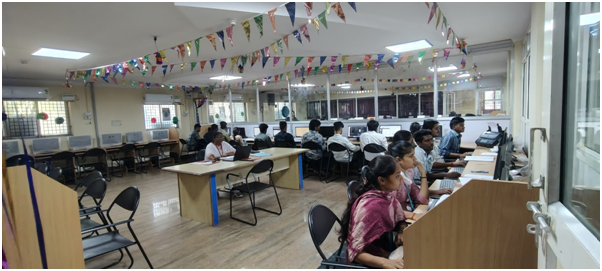
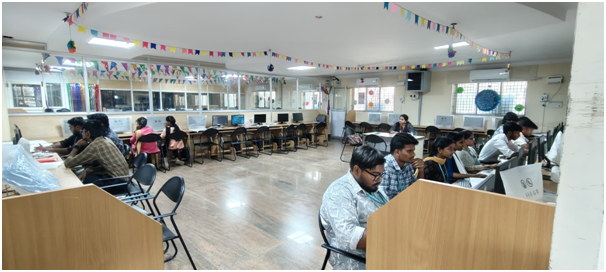
Library
Under constructions!
Achievements
• Ms. Tamilselvi S, I Year MCA-2(AY: 2024 -2025) has won third prize in Tamil Kavidhai – Intercollegiate Fest held on 09.10.2024 and 10.10.2024 organised by Shrimathi Devkunvar Nanalal Bhatt Vaishnav College For Women , Chromepet, Chennai.
• Mr. Akash S , Mr. Alex Franklin M , Ms. Gokul Priya A, Mr. Kumanan S and Mr. Prashanth R from I Year MCA (AY :2024 -2025) participated in the Bug Buster conducted on 19th September 2024 organised by the CINTEL Student Association , Department of Computational Intelligence, SRM Institute of Science and Technology, Kattankulathur.
Events
Under constructions!
Placement
Under constructions!
Research
Under constructions!
Contact
Dr. S. Parthasarathy, M.C.A.,M.Tech.,M.B.A.,Ph.D.
Professor & Head,
Dept. of Computer Applications,
SRM Valliammai Engineering College,
SRM Nagar, Kattankulathur – 603 203,
Chengalpattu District,
Tamil Nadu, India.
MOBILE : +91 – 9444287297 TEL : 044 – 27454784 / 726,
FAX : 044 – 2745 1504.
EMAIL : hod.mca@srmvalliammai.ac.in


